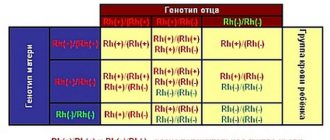Designed by Freepik
A genetic paternity test is indisputable evidence when establishing a blood relationship between a man and a minor. Legally, the latter is secured by recording in the civil register and the birth certificate of the offspring. Often, the court resorts to such an examination when considering the application of the baby’s father, seeking to obtain the rights and obligations in relation to the minor, or his mother, who wants to collect alimony from the citizen in favor of the child. DNA testing can be carried out not only during court proceedings, but also in pre-trial, private and anonymous settings. The article will tell you where you can take the test and what its cost is as of 2021.
What is the point of testing?
Genetic research is an advanced technique that helps establish family relationships between people. Previously, such events had not been held. Paternity was determined solely by external similarities and witness testimony.
Today there is no need for exclusive consideration of circumstantial evidence. At the slightest doubt, it is enough to resort to laboratory procedures and get a 99.9 percent result. In this case, the age of the offspring does not matter.
If a match is found between the material of the minor and the father, the court issues a decision to establish paternity. If there are no common features, then the authority refuses to satisfy the plaintiff’s demands. Such a test is required in the following situations:
- confirmation of the relationship between a minor and a man for the purpose of collecting alimony payments;
- establishing a connection between persons when inheriting property;
- establishing paternity if the baby’s father doubts the relationship;
- the need to obtain rights and responsibilities in relation to the offspring, if the citizen was not initially included in the birth certificate;
- for examination of kinship with other citizens (brothers, uncles, etc.);
- Y chromosome analysis;
- Mitochondrial DNA examination.
Types of services
You can file a claim to establish paternity:
- When visiting a judicial authority in person.
- By sending an application via courier or registered mail.
- Through a representative with a notarized power of attorney.
The initiator of the trial may be:
- Father.
- Guardian.
- Child (if he is already 18 years old).
- Mother.
- Guardianship authority.
A claim can be made:
- On one's own.
- With the help of a lawyer.
The plaintiff can represent his interests in court:
- Personally.
- With the help of a lawyer.
The judge can make a decision based on the following evidentiary materials:
- DNA test result.
- Photographic materials.
- Video materials.
- Testimony of witnesses.
A weighty argument is the result of DNA testing . It shows the probability of paternity with 99.9% .
You can apply to the court:
- Primary, to establish paternity.
- To appeal the decision made by the district court.
How to do an examination?
Testing can be done both after the baby is born and before. In the first case, the research methodology sometimes leads to premature birth of a child or the need to terminate a pregnancy. Therefore, it is better to resolve issues related to establishing kinship after the child is born.
Important! To identify matches and make a positive conclusion, the genetic material of a minor and a man is required. However, experts recommend taking samples from both parents. In this case, the result is faster and more informative.
One way to obtain a sample is to collect venous blood. This test was the first to appear. Today it is rarely used, especially if the child is very small. The second method is to obtain saliva. A swab from the inside of the cheek contains a set of DNA similar to blood. The reliability of the results obtained does not differ from the previous method, but the procedure for collecting material is carried out painlessly.
You can take a smear at home. For this:
- saliva is removed from the inner surface of the cheek with a sterile cotton swab;
- the sample is placed in a special container (purchased at a pharmacy) and transferred to the medical center;
- At the registration desk, fill out a form and sign an agreement for the provision of services.
Question:
Is it possible to submit other biomaterial for analysis?
Answer:
Sometimes specialized organizations offer to donate hair, nails, teeth, sperm, etc. for research. However, this is not convenient enough, because many rules will need to be followed when collecting and storing such material. For example, if the comb was used not only by the baby’s father, but also by other people, then the DNA examined in the hair may lead to the opposite result. In addition, the material must be extracted with the bulb. It is the latter that contains DNA.
DNA test during pregnancy
Conducting an analysis while a woman is pregnant is a risky procedure that requires professionalism from an expert and, undoubtedly, is reflected in the price. Not all clinics and diagnostic centers carry out collection of biomaterial from the fetus. The process is controlled by ultrasound. Despite possible complications, such a procedure will help not only to obtain proof of paternity, but also to identify genetic diseases (fetal malformations).
Methods for collecting material depend on the week of pregnancy:
- Chorionic villus biopsy - up to 12 weeks.
- Amniocentesis – 14-20.
- Cordocentesis - after 20 weeks.
How long should I wait for results?
The kit is examined only if it was collected within 7-10 days before delivery to the laboratory. Otherwise, the result is not guaranteed, and its accuracy is reduced.
Analyzes are done over 2-3 weeks. The period depends on the workload of the employees of the center to which the applicant applied. Sometimes the process can be expedited for a fee. As a rule, an additional fee of up to 8 thousand rubles is charged for an urgent test. In this case, the maximum waiting time will be 7 days.
The accuracy of the analysis of the material with a positive answer is precisely 99.9%, and not 100%, for the reason that the baby’s father may have a twin brother with an identical set of genes. In case of a negative result, the accuracy will be 100%.
What are the features of the analysis carried out for the court?
If research is required to resolve legal disputes, then it is necessary to identify all participants in the examination. Identity is confirmed by presenting an identification document, a birth certificate (for children under 14 years of age). After receiving the papers, they are photocopied and the copies are stamped with the seal of the expert organization. Participants must be photographed.
The sample collection protocol contains passport data, time and place of sample collection. Two or three signatures are placed on the form: the expert who carries out the fence, and two witnesses. After this, the protocol is certified by the laboratory’s seal. If at least one of these steps was carried out incorrectly or ignored, then the process of identifying participants will not acquire legal significance. The latter will deprive the expert opinion of weight when considering evidence during the trial.
Important! An examination ordered by the court must be carried out only in the laboratory to which the authority issued the referral. If citizens presented conclusions from other research centers, the body will not take this evidence into account.
The procedure for ordering genetic testing for paternity through the court
The appropriateness of the test and its purpose is determined by the judge considering disputes about establishing or challenging paternity, at the request of one or more parties.
By law, judges do not have the right to initiate genetic research or force participants in the process to conduct it if there is no voluntary consent to this. Even in a situation where DNA tests are the only way to establish a family connection between people.
But at the same time, in judicial practice there are often cases when a citizen’s evasion from participation in a molecular genetic study appointed for the judicial establishment of kinship with a child is regarded as an opportunity to recognize paternity as established in court.
The interested party's petition must contain a question that needs to be raised to identify laboratory specialists, as well as identify the person paying for the research. It is important that the specific formulation of the task set for the resolution of specialists is important; questions must be posed unambiguously in order to exclude their unreliable interpretation. There may be different possible presentations of possible conclusions that may play a role in the outcome of the trial.
The following questions may be asked for permission from specialists:
- Does the material taken for research belong to a specific person;
- Based on the test results, whether one of the parties is the biological father of a particular child;
- The plaintiff or defendant is the mother of the child;
- A woman becomes pregnant due to a specific man.
The obligation to pay for the examination rests with the person who filed the application to conduct it. If the party to the proceeding who is charged with paying for the tests evades compensation, the expert institution issues an invoice, the amount of which is taken into account by the court when distributing costs between the parties to the proceeding.
An application for a genetic test must contain the circumstances presented by the interested person that require confirmation through such an examination, as well as an argument for the possibility of obtaining the required information to confirm the biological relationship of the father and child by obtaining a specialist opinion. The petition can indicate a specific employee or expert organization that the interested participant in legal proceedings trusts to conduct DNA research.
Download the application for a genetic examination to establish paternity (sample)
Such examinations can only be carried out by laboratories that have a license to carry out such activities and have passed accreditation, which eliminates the provision of poor-quality analysis and the receipt of false test results. Such methods of expert analysis of the family relationship between father and child are based on the most complex new technologies, requiring appropriate training and special knowledge from employees of the institution. In addition, even the interpretation of information obtained during the research process requires highly specialized education from experts.
Therefore, DNA paternity testing through the court can only be ordered in private and public medical institutions that are equipped with the necessary equipment to conduct such studies and trained experts for such activities.
In a situation where the parties to the dispute want to independently carry out a genetic examination without a court ruling, and then present it as evidence, then before receiving an expert’s opinion, it is necessary to check with the medical organization for a special license. The court cannot rely on the result of the examination if the laboratory in which the service was provided does not have the appropriate license to provide medical services for forensic examination of research evidence and studies of biological material, including DNA examination.
It should be noted that subjects who have undergone an expert analysis in an institution that does not have the right to provide such a service will need to take the test again and pay for it again to prove the relationship between the father and the child.
In the event of a judicial determination of the need to conduct research, the court's ruling indicates the expert institution that carries out such testing of genetic material. Having received the expert's opinion, the parties to the proceeding have the right to demand from the judge to call the specialist who conducted the test to question him at court hearings about the work performed.
How much does the examination cost?
Currently, even in small cities there are laboratories that provide citizens with examination services. Independent medical centers provide services to establish biological paternity. As a rule, the customer visits the organization and submits a sample on site. Sometimes citizens independently collect biomaterial for analysis and send it by courier.
The cost depends on the following factors:
- test type;
- number of study participants;
- type of biomaterial (can increase the price by a third);
- urgency;
- policy determined by a specific organization (clinic).
Question:
What is the cost of the procedure in Moscow?
Answer:
In Moscow, prices for genetic testing are as follows:
- conducting a DNA paternity test with taking samples from a minor and a man will cost 10–12 thousand rubles;
- a judicial analysis to determine the relationship between parent and offspring will cost 16–18 thousand rubles;
- if a pregnant woman and her partner are participants in the procedure, then for laboratory manipulations you will have to prepare an impressive amount - up to 90 thousand rubles;
- For urgency, an additional 4 thousand will be charged.
How long does it take to do a DNA paternity test?
A mandatory procedure before conducting research is the collection of samples of biological materials . The standard sample is buccal epithelium, which is collected from the surface of the buccal mucosa.
This procedure is quite simple and takes approximately 4 – 5 minutes . If the collection is carried out at home, then the time it takes to deliver the samples to the laboratory should be taken into account.
On average, a standard DNA paternity test takes 3 days; in some cases, this period can be reduced to one day . The conditions for carrying out urgent analysis can be clarified with our specialists at the indicated telephone numbers.
Who pays for laboratory services?
The person paying for services in a lawsuit is an interested party in the case. The large sum may be paid by the applicant himself or may be divided between both parents. In the latter case, it is necessary to formulate a joint statement of claim to establish paternity.
Important! If the initiative to conduct research to establish family ties between the minor and the defendant comes from the authority considering the petition, then the payment is made from the federal budget.
If the claims filed by the baby's mother are satisfied, the defendant, recognized as the minor's father, will be required to pay the funds spent by the applicant in connection with the DNA test.
What does the cost of the service depend on?
The costs of establishing paternity through the courts can vary widely. The following factors influence the amount of final financial expenses:
- Who files the claim and what type of claim.
- Who is the author of the application?
- Is a lawyer hired to represent interests in court?
- Are there evidence base materials, are they sufficient?
- The need for DNA testing and the location and cost of such a test.
- The amount of state duty for filing a claim in court.
- The need to issue a notarized power of attorney.









